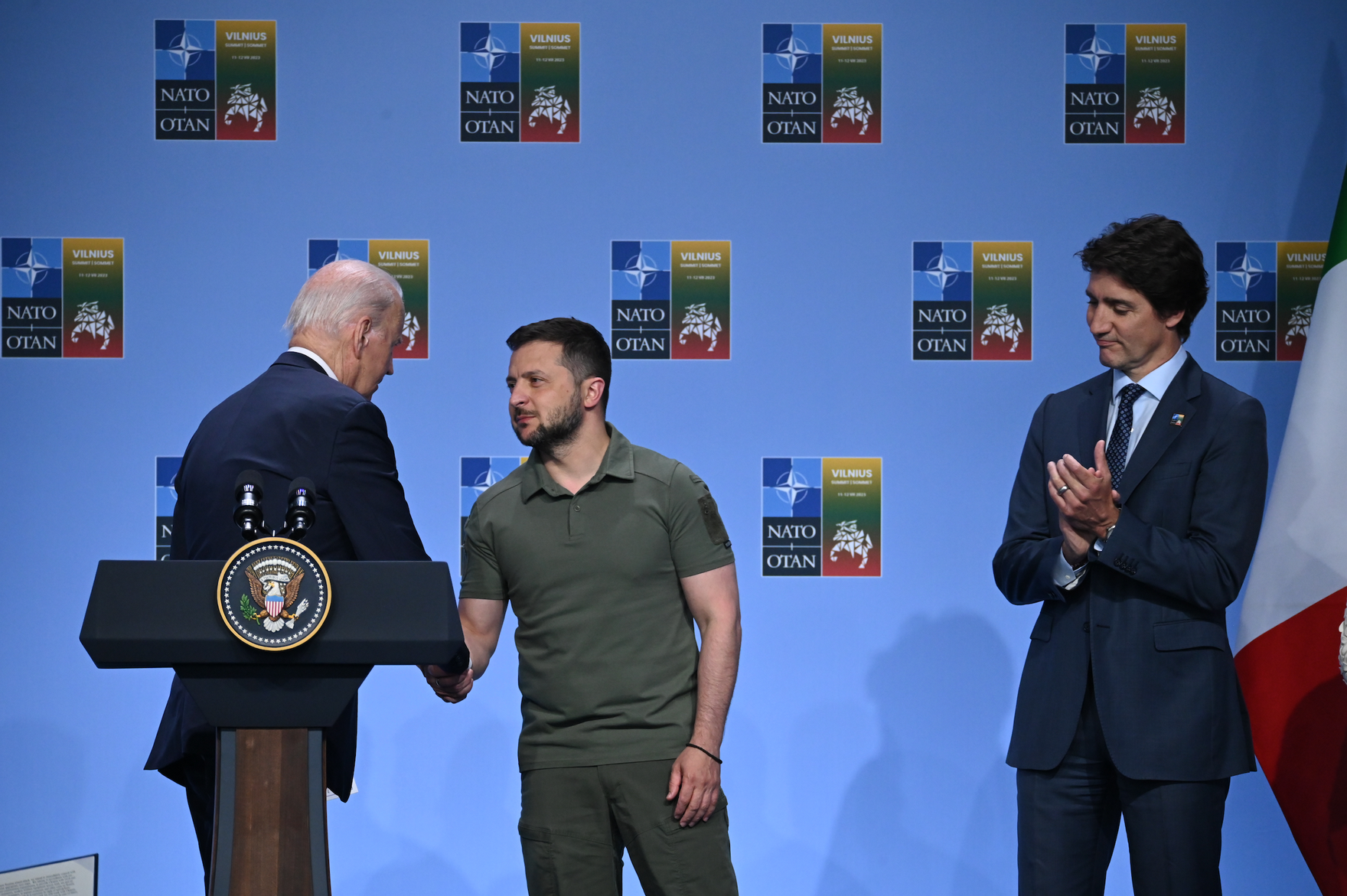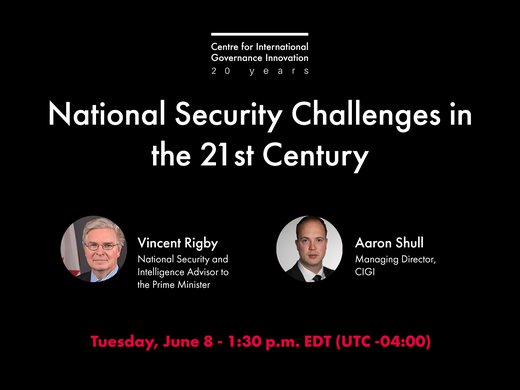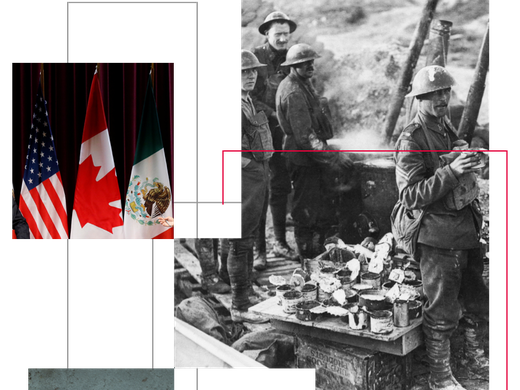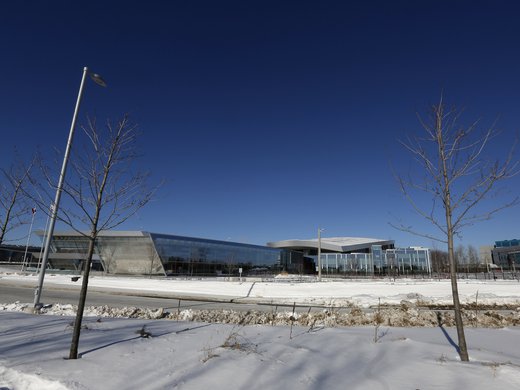The current geopolitical environment is turbulent, dangerous, torn loose from the anchor of a rules-based international order and the optimism that attended the end of the Cold War. In searching for a descriptor, the phrase gaining traction among political leaders in the English-speaking world is “inflection point.” US President Joe Biden most recently used it in an address in Vilnius on July 12, following the North Atlantic Treaty Organization (NATO) summit. He told his Lithuanian audience that “we stand at an inflection point, an inflection point in history, where the choices we make now are going to shape the direction of our world for decades to come. The world has changed.”
Biden made it clear those choices were about stopping naked aggression and deterring future war, staunching the climate crisis, harnessing new technologies for good, and advancing opportunities for all. The German chancellor, Olaf Scholz, has adopted the concept, by talking about Germany’s Zeítenwende, or epochal turning point, as he did in an address to the German Parliament in February 2022 following the Russian invasion of Ukraine. This sense of being at a historical point of change infuses his country’s new and unprecedented national security strategy.
Canada’s prime minister has clearly been struck by this rhetorical turn. Justin Trudeau has also adopted the “inflection point” phrase, and used it in speeches earlier in 2023 to the US-Canada Summit and to the Council on Foreign Relations (CFR) in New York City. In his address to the CFR, Trudeau said this: “The world is in a tough place. Democracy is under threat. The old way of doing things isn’t going to work anymore. Things are changing fast. People are polarized. We are at an inflection point, and people are anxious about all the changes that lie ahead.…We all need to be more consequential in our decision-making. We need to look at the world with a wider understanding that economic policy is security policy is climate policy, is social policy.”
But has Canada — by ingrained habit, a complacent follow-the-leader when it comes to national security issues — actually reached its own inflection point on national security policy? Is the federal government making consequential decisions in this regard? Most importantly, has the national security system been reoriented to embrace that wider understanding the prime minister talks about? Answers to these questions suggest a dangerous gap between recent experience and the country’s response.
If the concept of inflection point has any meaning for Canada, surely we have reached it. In the space of three years, the country has been through a succession of national security crises and controversies — COVID-19 starting up in early 2020; the so-called “freedom convoy” protests in early 2022, which led to the first-ever invocation of the federal Emergencies Act; the Russian invasion of Ukraine in February 2022; a seemingly unstoppable flow of leaks of classified intelligence on Chinese election interference attempts targeting Canada, amplified by media reporting in 2022 and 2023; partisan political accusations of bungled intelligence files; intelligence reports falling into black holes. Beneath these iceberg tips are relentless foreign espionage activities targeting Canada, cyberattacks and state-sponsored disinformation campaigns.
In response to this cascading series of crises, in each instance, the federal government has been in reaction mode. Indeed, reaction, not always coherent or well thought out, has been the leitmotif of the government’s approach for several years. In 2023, a season of deadly wildfires has been met with the usual cobbling together of emergency assistance.
The government will insist that it has made “consequential” decisions to boost national security capacity. It can point to efforts to bolster the Public Health Agency of Canada’s pandemic preparedness, intelligence and threat assessments. It will note its willingness to respond to the recommendations of the Public Order Emergency Commission. It could highlight enhanced defence intelligence capacity to track the war in Ukraine and call attention to Russian disinformation, intelligence assistance (satellite imagery and drone cameras) provided to Ukraine, and governance changes to the flow of national security intelligence to avoid future black holes when it comes to reporting on foreign interference. The government has convened independent review agency studies of foreign interference, has promised a foreign influence transparency registry, launched the (failed) experiment of a special rapporteur and now, of course, has established a judicial inquiry into foreign interference with all-party support.
But these efforts are consequential only in the dictionary definition of “following on” from something and being “important.” They are not consequential in articulating or executing a strategy or a comprehensive approach that is forward-looking. This is the problem.
Major public reports — first a special report from CIGI, in December 2021, and then a task force study from the Graduate School of Public and International Affairs at the University of Ottawa, in May 2022 — have called attention to the need for more strategic approaches to national security. Most recently, the Business Council of Canada (BCC) has weighed in, releasing a report on September 7, 2023, that directly tackles the prime minister’s assertion that economic security is national security. The BCC argues that the strategic linkages between economic and national security are missing in Canada and much more needs to be done.
In a section headed “Canada must catch up with its closest allies,” the BCC makes its central assertion: “Canada must fundamentally alter the way it approaches issues of national security. This will require an over-arching national security strategy that takes an eyes wide open approach to the complex ways strategic threat actors seek to undermine Canada, while explicitly recognizing that economic security is central to a broader national vision of a more secure country.”
With this report, the BCC cogently makes a case not only for a new national security strategy but also for the critical role that Canadian business can play in this. The BCC offers new investments by its members in security, and new funding to academic institutions for national security-related projects. And it insists on the need for sustained and deep partnerships between the private sector and the federal government.
Clearly, the BCC has reached its own inflection point on national security, prompted by concerns about the mercantilist policies of strategic competitors such as China, and by recent examples of weaponized trade and supply chains that first rose to prominence during COVID-19. Supply chain threats are an enduring concern about Chinese economic policy, and have become a feature of the Russian conduct of the war against Ukraine, above all in its effort to throttle grain shipments from Ukraine. The BCC even argues for a “NATO for trade,” to provide for a network of allied economies that could come to each others’ aid when they are aggressively targeted by adversaries.
For the federal government, the BCC report should be a powerful message and a gift horse not to be overlooked. Its 30 recommendations are all worthy of consideration.
Will Ottawa seize the opportunity?
Consider the prime minister’s aspirational equation linking economic, security, climate and social policy. These can serve as the four compass points for a Canadian agenda. But Canada is a very long way from integrating climate policy and social policy with its approach to security. Climate change security impacts are real and accelerating but not yet the subject of coherent or innovative approaches in government. Nor is there nearly enough plain speech, from people in authority, about why national security is a key piece of social policy and a matter of vital importance to all Canadians. That must change.
Economic security and national security are far from fused, as the BCC report makes clear. We have no national security policy whatsoever.
The nexus point for an integration of economic and national security, climate action and social policy reform must be a national security strategy. Even then, it will only be the starting point for action.
With a comprehensive and integrated road map for national security that speaks to the four compass points, current and future governments can begin to climb out of reactive mode. The changes are many, from completely revamping Canadian Security Intelligence Service legislation, to increasing Canada’s global intelligence capabilities and enhancing our international intelligence partnerships, to paying real attention to economic security issues, to building strong and sustained partnerships between the government’s work on national security issues and related competencies in the private sector and academia, to boosting Canada’s capacity in core emerging and disruptive technologies through industrial policy, and, finally, to transforming defence and security procurement. Real transparency and public education must accompany these efforts.
In short, Canada must quickly become a smart power in a dangerous world.
National security has rarely been at the top of the Canadian political agenda, except in times of war. In peacetime, other domestic concerns predominate, whether they be national unity, middle class prosperity for all, or social policy. But we now live in an age where the boundaries between war and peace are blurred. Our geography no longer protects us from globalized threats. That is the nature of the current inflection point.
Rhetoric cannot address it. It is a time for strategy. Strategy must drive action to address growing vulnerabilities, to make changes that will ensure Canada’s ability to defend its place and interests in the world, and to seize opportunities that will benefit Canada.



